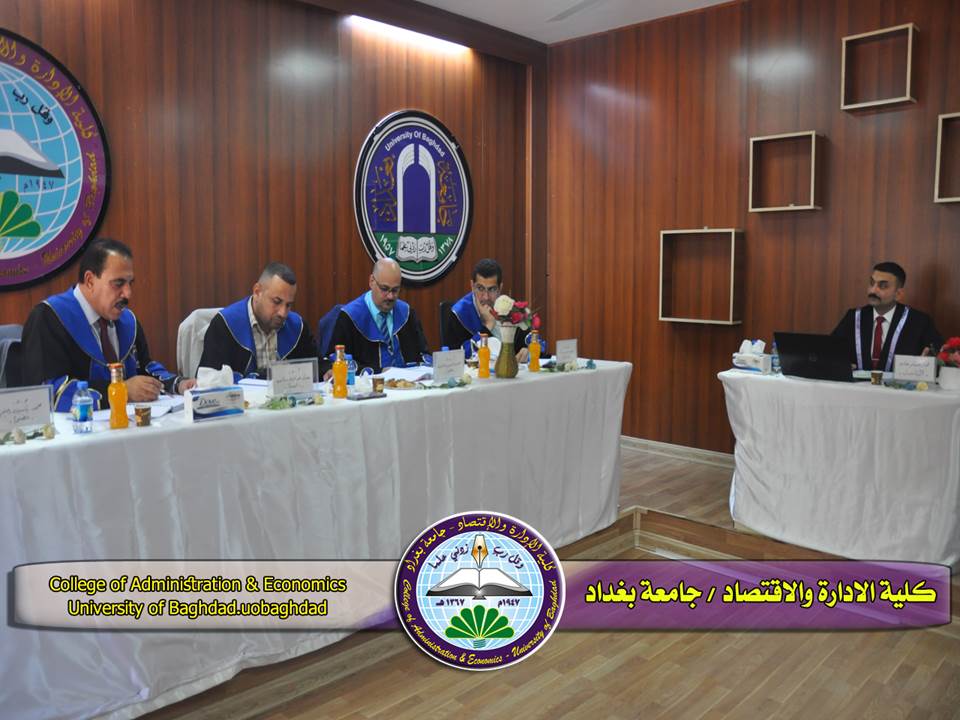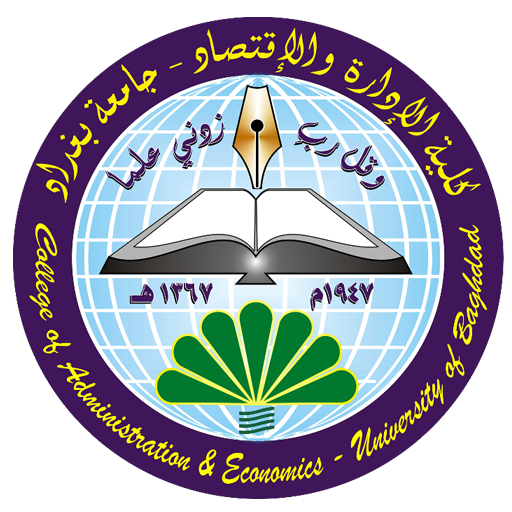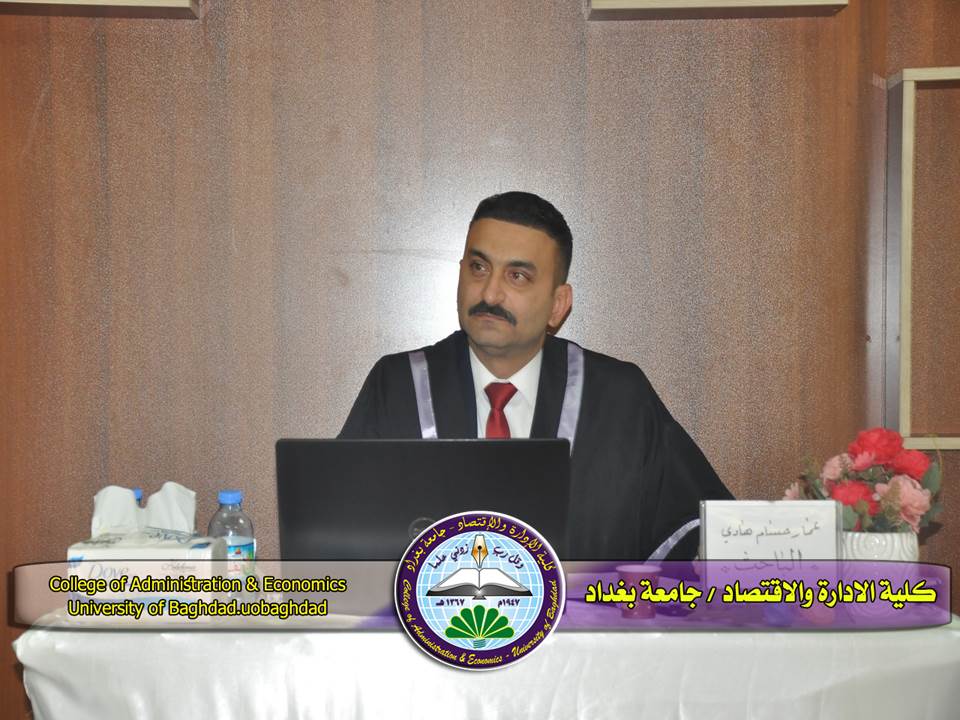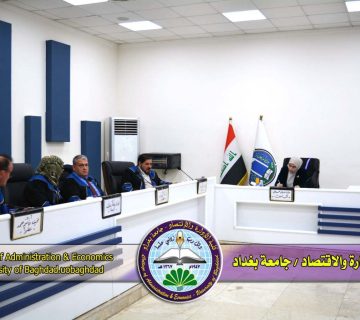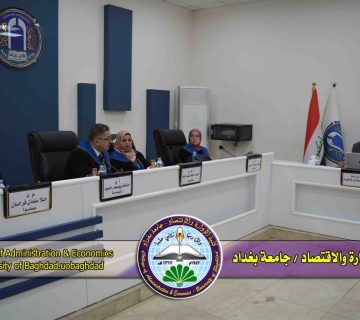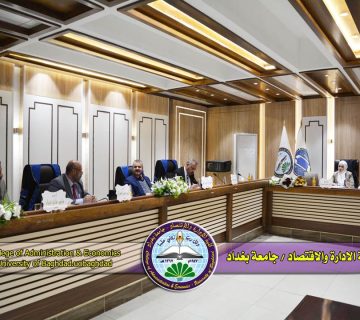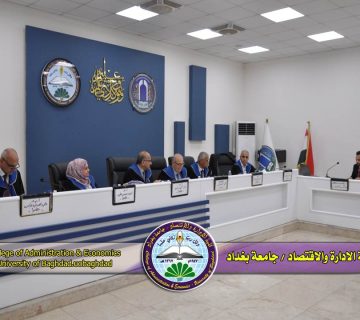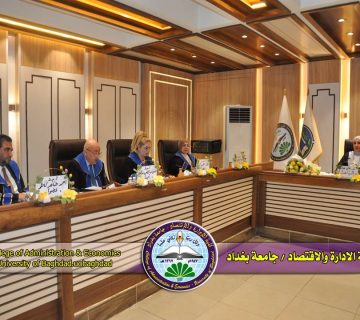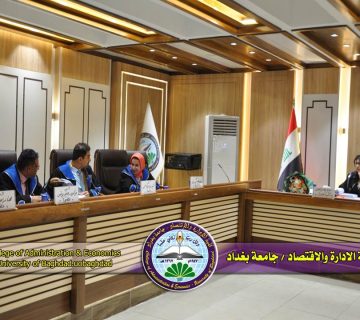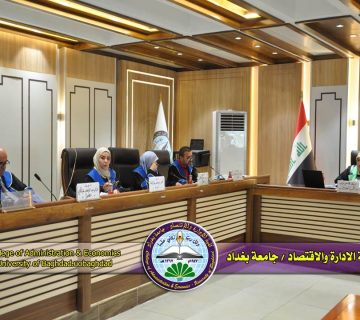The College of Administration and Economics at the University of Baghdad discussed a higher diploma equivalent to Master’s Thesis in field of security strategic planning by the student ( Ammar Husam Hadi ) and tagged with (Strategic orientation and its impact on institutional performance \ Analytical research in the Iraqi National Security Service ), Under supervision of (Lec.Dr.Yousif Aftan Abdullah)
The primary objective of this research is to investigate the impact of strategic orientation on institutional performance within the Iraqi National Security Service. The study aims to provide recommendations that can enhance the practice and adoption of the studied variables within the
institutions under examination. The research employed a descriptive analytical approach given the significance of the research topic to society, the institution, and its members.
The research population consisted of planning workers in the Directorate of Planning and Follow-up. The sample included the director general, his assistants, department heads and their assistants, as well as employees from associated departments. These individuals were selected intentionally due to their expertise and competence. A questionnaire was used as the primary data collection tool, with 130 questionnaires distributed to the research sample. Out of the 118 respondents, 115 valid questionnaires were included for analysis.
The questionnaire comprised 30 items related to the research variables. Data analysis was conducted using SPSS v.26, AMOS v.26, and Excel v.2021. Various statistical methods, such as frequencies and percentages, arithmetic mean, standard deviation, coefficient of variation, normal distribution test, Cronbach’s alpha, exploratory and confirmatory factor analysis, and simple linear regression, were employed to test the research hypotheses.
The main findings indicated a direct influence of strategic orientation on institutional performance within the Iraqi National Security Service. It was observed that senior management sets clear goals, reflecting a well-defined and systematic planning process for various activities. Additionally, they heavily rely on advance planning to successfully achieve goals and tasks by developing precise plans and identifying necessary steps. This approach contributes to effectiveness, efficiency, and successful goal attainment. The researcher proposed a set of recommendations and mechanisms based on the findings.
